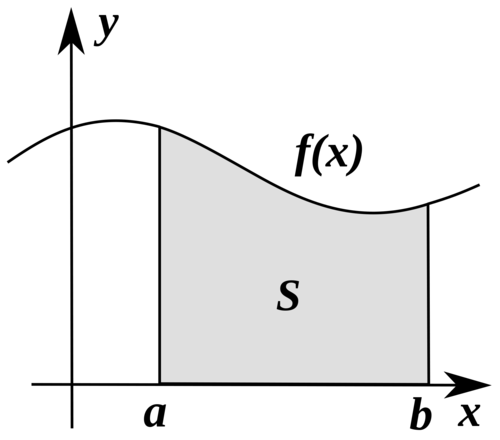Definite Integral Challenge
 ∫
0
2
1
6
−
x
2
+
(
4
−
x
)
(
4
+
x
)
(
1
2
+
x
2
)
(
1
6
−
x
2
)
x
d
x
∫
0
2
1
6
−
x
2
+
(
4
−
x
)
(
4
+
x
)
(
1
2
+
x
2
)
(
1
6
−
x
2
)
x
d
x
The integral above has a simple closed form. Find this closed form.
Give your answer to 3 decimal places.
The answer is 1.
This section requires Javascript.
You are seeing this because something didn't load right. We suggest you, (a) try
refreshing the page, (b) enabling javascript if it is disabled on your browser and,
finally, (c)
loading the
non-javascript version of this page
. We're sorry about the hassle.
1 solution
Method 2 is ingenious. Thanks for posting it, Gregory. :)
How is this a level two...
Log in to reply
..... Because of WolframAlpha, (and also because the answer is unity) :) Whatever the level, Method 2 is a thing of beauty, which is why I re-shared this question.
It is. It's just very, very tedious. Integration is like that. It's not difficult but it's very tedious.
Well, the problem isn't complicated to the point where you would need knowledge of trig substitutions, integration by parts, etc. to solve. It's a lot of algebra, but all you really need to know is substitution (i.e. method 2).
sui generis work thanks ;) for posting it ..
I love this computation yeyy!! ⌣ ¨
Method 1:
For the integrand 1 6 − x 2 + ( 4 − x ) ( 4 + x ) ( 1 2 + x 2 ) ( 1 6 − x 2 ) x , rationalize: ∫ 0 2 2 x 4 − 3 6 x 2 + 6 4 x ( x 2 − 1 6 ) ( x 2 + − x 4 + 4 x 2 + 1 9 2 − 1 6 ) d x
Expand the integrand ∫ 0 2 2 x 4 − 3 6 x 2 + 6 4 x ( x 2 − 1 6 ) ( x 2 + − x 4 + 4 x 2 + 1 9 2 − 1 6 ) : ∫ ( − 2 x 4 − 3 6 x 2 + 6 4 1 6 x − x 4 + 4 x 2 + 1 9 2 + 2 x 4 − 3 6 x 2 + 6 4 2 5 6 x + 2 x 4 − 3 6 x 2 + 6 4 x 5 + 2 x 4 − 3 6 x 2 + 6 4 x 3 − x 4 + 4 x 2 + 1 9 2 − 2 x 4 − 3 6 x 2 + 6 4 3 2 x 3 ) d x
The anti-derivative of − 2 x 4 − 3 6 x 2 + 6 4 1 6 x − x 4 + 4 x 2 + 1 9 2 + 2 x 4 − 3 6 x 2 + 6 4 2 5 6 x + 2 x 4 − 3 6 x 2 + 6 4 x 5 + 2 x 4 − 3 6 x 2 + 6 4 x 3 − x 4 + 4 x 2 + 1 9 2 − 2 x 4 − 3 6 x 2 + 6 4 3 2 x 3 is 4 1 ( x 2 + − x 4 + 4 x 2 + 1 9 2 − 1 4 ln ( − x 4 + 4 x 2 + 1 9 2 + 1 4 ) ) + C : [ 4 1 ( x 2 + − x 4 + 4 x 2 + 1 9 2 − 1 4 ln ( − x 4 + 4 x 2 + 1 9 2 + 1 4 ) ) ] ∣ ∣ ∣ ∣ 0 2
Evaluate the antiderivative! [ 4 1 ( 2 2 + − 2 4 + 4 ( 2 ) 2 + 1 9 2 − 1 4 ln ( − ( 2 ) 4 + 4 ( 2 ) 2 + 1 9 2 + 1 4 ) ) ] − [ 4 1 ( 0 2 + − 0 4 + 4 ( 0 ) 2 + 1 9 2 − 1 4 ln ( − ( 0 ) 4 + 4 ( 0 ) 2 + 1 9 2 + 1 4 ) ) ] [ 4 1 ( 4 + 8 3 − 1 4 ln ( 1 4 + 8 3 ) ) ] − [ 4 1 ( 8 3 − 1 4 ln ( 1 4 + 8 3 ) ) ] = 1
Method 2: Let I denote the given integral. First we make the substitution y = x 2 , so d y = 2 x d x . Then: 2 I = ∫ 0 4 1 6 − y + ( 1 6 − y ) ( 1 2 + y ) 1 6 − y d y = ∫ 0 4 1 6 − y + 1 2 + y 1 6 − y d y
Now make the substitution z = 4 − y , so d z = − d y . Then: 2 I = ∫ 0 4 1 2 + z + 1 6 − z 1 2 + z d z
Adding the last two equations, we obtain 4 I = ∫ 0 4 d z = 4 and hence I = 1 .